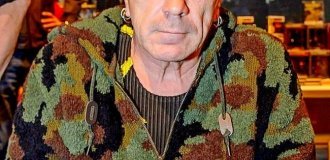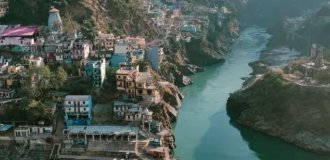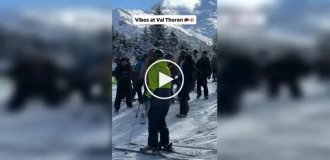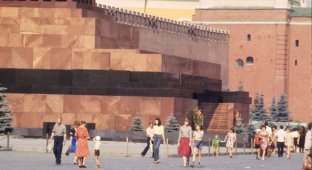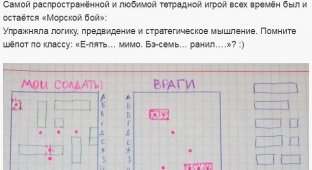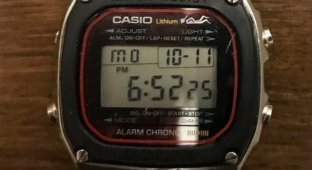Leonid Ilyich Brezhnev (40 photos + text)
Leonid Ilyich Brezhnev - Soviet party and statesman: General Secretary of the Central Committee of the Communist Party of the Soviet Union, Chairman of the Presidium of the Supreme Soviet of the USSR, Chairman of the Defense Council, Marshal of the Soviet Union.

As befits a political leader of a bygone era, the biography of Leonid Brezhnev was impeccable from the point of view of the class approach. He was born on December 19, 1906 in the family of a metallurgist in the village of Kamenskoye (now Dneprodzerzhinsk). He began his working life at the age of fifteen. He entered the factory as a fireman, then became a mechanic. In 1927 he graduated from the Kursk Land Management and Reclamation College and was assigned to the Urals. He joined the Komsomol in 1923, and became a member of the CPSU in 1931. In 1935 he graduated in absentia from the Metallurgical Institute in Dneprodzerzhinsk. He worked as an engineer at a metallurgical plant.

Brezhnev was nominated to his first responsible post in the Dnepropetrovsk regional party committee in 1938, when he was about 32 years old. At that time, Brezhnev's career was not the most rapid. However, Brezhnev was never a careerist who strives to the top, pushing aside other contenders with his elbows and betraying his friends. He was distinguished by his calmness, loyalty to his colleagues and superiors, and did not so much make his way himself as he was promoted by others. In those years, he was patronized by his comrade at the Dnepropetrovsk Metallurgical Institute, Konstantin Grushevoy, who became the first secretary of the Dneprodzerzhinsk city party committee.
In June 1941, Brezhnev joined the army. However, Brezhnev did not have serious patrons in the military environment, and he did not make a career in the army. At the beginning of the war, as the secretary of the regional committee, he was awarded the rank of colonel, and he ended it as a major general, advancing only one rank. They didn’t spoil him in terms of awards either.

Brigade Commissar L.I. Brezhnev
By the end of the war, he had two Orders of the Red Banner, the Order of the Red Star, Bohdan Khmelnitsky and two medals. At that time, this was very modest for a general. During the Victory Parade on Red Square, where Major General Brezhnev walked with the commander at the head of the combined column of his front, there were noticeably fewer awards on his chest than most other generals.
In the post-war years, Brezhnev owed his promotion to Khrushchev, which he did not like to remember. After working in Zaporozhye, he was promoted to the post of first secretary of the Dnepropetrovsk regional party committee, and in 1950 - to the post of first secretary of the Central Committee of Moldova. At the 19th Party Congress in the fall of 1952, Brezhnev, as the leader of the Moldovan communists, was elected to the CPSU Central Committee. During the congress, Stalin saw Brezhnev for the first time. The old and sick dictator drew attention to the imposing 46-year-old Brezhnev. Stalin was told that this was the party leader of the Moldavian SSR. “What a handsome Moldovan,” said Stalin.
After Stalin's death, the composition of the Presidium and Secretariat of the CPSU Central Committee was immediately reduced. Brezhnev, who was appointed head of the Political Directorate of the USSR Navy, was also removed from the squad. He received the rank of lieutenant general and was forced to put on his military uniform again. It was a difficult period for Brezhnev. The admirals greeted the “land commissar” without much warmth. And Leonid Ilyich himself was not happy about his return to the army; he dreamed of returning to party work again.

While with Nikita...
Everything changed in 1954, when Khrushchev sent him to Kazakhstan to lead the development of virgin lands. Brezhnev triumphantly returned to Moscow in 1956 and after the 20th Congress of the CPSU he became one of the secretaries of the Central Committee and a candidate member of the Presidium of the CPSU Central Committee.

Lieutenant General N.S. Khrushchev and Colonel L.I. Brezhnev.
He was to oversee the development of heavy industry, and later defense and aerospace. However, all the main issues were decided personally by Khrushchev, and Brezhnev acted as a devoted assistant. After the retirement of K. E. Voroshilov, Brezhnev became his successor as Chairman of the Presidium of the Supreme Soviet of the USSR. So Leonid Ilyich actually became the “third” person in the country’s leadership.
In 1964, Brezhnev became one of the participants in the conspiracy of the party elite, which decided to remove the unpredictable and tormented Khrushchev. However, according to eyewitnesses, Leonid Ilyich was neither the initiator nor the main driving force of this secret operation. And he eventually received the highest party post as a compromise figure who equally suited all Kremlin groups. So, unexpectedly for himself, Leonid Brezhnev found himself at the head of a huge state.
There will be no blood
Leonid Ilyich did not prepare for the role of leader. He did not have any clear program of action. He had no ideas for a radical restructuring
powers. This, oddly enough, became his main advantage. Brezhnev tried not to take risky steps, was never in a hurry and always consulted with experts.

The country was spared from shocks and dangerous experiments for almost two decades. At the same time, Brezhnev sincerely wanted people to live better, and just as sincerely strove for peace, quite reasonably believing that powerful armed forces could provide it.
There were many people around him who recalled with nostalgia the times of Stalinism and, for any reason, demanded the use of the most stringent measures. But Leonid Ilyich was never a supporter of violence.
Writer Konstantin Simonov, shortly after Brezhnev's election as first party secretary, wrote to him about his fears about a return to repression. Leonid Ilyich accepted him and said: “As long as I’m alive,” he then corrected himself, “while I’m in this office, there will be no blood.” Brezhnev was a peace-loving man by nature. Even the attempt on his life on January 22, 1969, which occurred during a gala meeting of astronauts, did not affect him in any way.
When Brezhnev became first secretary, many in the Central Committee breathed a sigh of relief. After the unpredictable, harsh, and often downright rude Khrushchev, they finally got a balanced and benevolent leader. All members of the Presidium of the Central Committee were given the opportunity to freely express their opinions. Brezhnev did not restrict or interrupt anyone. He even established this order himself: everyone must speak out on every issue. And he took into account the opinions of his colleagues.

Brezhnev was generally a benevolent person; in principle, he did not like complications and conflicts either in politics or in personal relationships with his colleagues. When such a conflict did arise, he tried to avoid extreme solutions. Only a few of the government officials who committed misconduct were sent to retire. Most of the “disgraced” leaders remained in the “nomenklatura”, but only 2-3 steps lower. A member of the Politburo could become a deputy minister, and a former minister, secretary of the regional party committee, member of the CPSU Central Committee was sent as an ambassador to a small but quite comfortable country: Denmark, Belgium, Australia, Norway.
Shoot like that...
For all his good nature, Brezhnev was a passionate, impulsive and addicted person. For many years, his main passion was hunting. The Secretary General did not abandon it even in the last years of his life. He usually spent his weekends in Zavidovo, a military hunting estate of the Ministry of Defense, located on the border of the Moscow and Tver regions.


On the hunt
The boars were fed potatoes there. They approached the hunters' position at 25-30 meters. It was almost impossible to miss. But just in case, the huntsman fired at the same time as Brezhnev. So they didn’t return without booty. This method of hunting caused ridicule among many; they said that it was easier to walk to a collective farm and shoot a couple of pigs there. But sometimes, even here, dangerous situations occurred when a boar that had already been shot suddenly came to life and rushed at the hunters. However, there was always a huntsman and security nearby.

Cadillac of Leonid Ilyich Brezhnev
Brezhnev's cars evoked no less strong emotions. He himself loved to drive a car and, as a rule, drove at great speed. US Secretary of State Henry Kissinger recalled coming to Moscow in 1973 to negotiate Brezhnev's visit to the United States.

Richard Nixon and Leonid Brezhnev


Jimmy Carter and Leonid Ilyich Brezhnev. SALT II Treaty is signed.
Almost all of the five-day negotiations took place in the Zavidovo hunting ground during walks, hunting, lunches and dinners. Finally, Brezhnev decided to demonstrate to the guest his art of driving a car. Kissinger writes in his memoirs: “One day he led me to the black Cadillac that Nixon had given him a year ago. He got behind the wheel. And we raced at high speed along narrow winding country roads, so that one could only pray that Some policeman appeared at the nearest intersection and put an end to this risky game. True, it was too incredible, because if there was any traffic policeman here, outside the city, he would hardly have dared to stop the car of the General Secretary of the Party. Quick The ride ended at the pier. Brezhnev placed me on a hydrofoil boat, which, fortunately, he did not drive himself. But I had the impression that this boat should break the speed record that he had set
Secretary General during our car trip."

To hunting and cars it is necessary to add one more weakness of the General Secretary: he has always been a great connoisseur of female beauty. There were many legends about the cheerful life of Leonid Ilyich. Famous names of singers and actresses were mentioned. In his declining years, flight attendants and nurses began to brighten up his leisure time. During an official visit to the United States, where Brezhnev went without his wife, the flight attendant of his personal plane spent several days with him. He even introduced her to President Nixon, who smiled politely. Saying goodbye, he told her: “Take care of the general secretary.”
At the same time, Leonid Ilyich managed to successfully play the role of an exemplary family man. Back in 1928, Leonid Ilyich married Victoria Petrovna Denisova.

She was a year younger than Leonid Ilyich and studied at the Kursk Medical College. They met at a dance in the dormitory. Soon they got married. Victoria received a diploma as a midwife, but almost never worked, taking care of her husband and then her children. While still in Sverdlovsk, they had a daughter, Galina, and then a son, Yuri. Victoria Petrovna managed to create a reliable and comfortable rear for her husband. Her house was always cozy, she was an excellent cook.

Handsome man......
Leonid Ilyich always enjoyed success with women, but his affairs on the side did not ruin his family. Brezhnev got used to his wife and invariably consulted with her on all household and family matters. I was genuinely worried about her.


Brezhnev in the circle of loved ones

Lieutenant Colonel Yuri Churbanov and the daughter of the General Secretary of the CPSU Central Committee Galina Brezhneva
Having become the first lady of the state, Victoria Petrovna has not changed at all. She continued to devote herself to her husband, children and numerous relatives who were constantly in need of help. In addition, their own children, especially daughter Galina, caused the Brezhnev couple a lot of trouble and worry.
Having reached old age, Brezhnev began to experience a pathological love for various awards. Perhaps it was due to the fact that during the war years he was frankly not given enough of them. And in subsequent times they didn’t indulge either. After the war, under Stalin, Brezhnev was awarded the Order of Lenin. For 10 years of Khrushchev's leadership, Brezhnev was awarded the Order of Lenin and the Order of the Patriotic War, 1st degree. However, after Brezhnev himself came to lead the country and the party, awards began to rain down on him like from a cornucopia.

By the end of his life, he had significantly more orders and medals than Stalin and Khrushchev combined. At the same time, he most of all wanted to receive military orders. He was awarded the title of Hero of the Soviet Union four times, which according to its status can only be awarded three times. Before this, the only exception was Marshal Zhukov. Dozens of times he received the title of Hero and the highest orders of all socialist countries.
He was awarded orders from Latin America and Africa. Brezhnev was even awarded the highest Soviet military order "Victory", which was awarded only to the greatest commanders for outstanding military operations carried out on the scale of fronts or groups of fronts. A large box was made for him especially to store his awards.

He often took out orders, like a child sorting through them. Naturally, with so many highest military awards, Brezhnev could not be satisfied with the rank of lieutenant general. In 1976, he was awarded the rank of Marshal of the USSR. Brezhnev came to the next meeting with veterans of the 18th Army in a raincoat and, entering the room, commanded: “Attention! The marshal is coming!” Throwing off his cloak, he appeared before the veterans in a new marshal's uniform. Pointing to the marshal stars on his shoulder straps, Brezhnev proudly said: “I have achieved the rank!”
During the funerals of Soviet leaders, it is customary to carry their awards pinned to small velvet pillows. When Suslov was buried, fifteen senior officers carried his orders and medals behind the coffin. But Brezhnev had more than two hundred awards! I had to attach several orders and medals to each velvet pillow. This allowed the honor escort to be limited to forty-four senior officers.

Despite the impression of physical strength that he produced right into old age, Brezhnev was not distinguished by great health. He suffered his first heart attack back in the 1950s. And in the late 60s and early 70s, health problems worsened even more. At the beginning of 1976, he experienced clinical death. Doctors managed to bring him back to life, but for two months he was unable to work, his thinking and speech
were violated. Since then, a group of doctors armed with the necessary equipment was constantly next to Brezhnev. Although the health of our leaders was then one of the closely guarded state secrets, Brezhnev's progressive infirmity was obvious to everyone who could see him on their television screens.

Already in the late 1970s, Brezhnev's ill health began to affect his ability to govern the country. He was forced to frequently interrupt his duties or delegate them to an ever-growing staff of personal assistants. Brezhnev's working day was reduced to several hours. He began to go on vacation not only in the summer, but also in the spring. Gradually, it became increasingly difficult for him to carry out even simple protocol duties, and he stopped understanding what was happening around him.

However, most of the influential people from his circle were interested in Brezhnev appearing in public from time to time, at least as a formal head of state. They literally led him by the hand and reached the worst: the old age, infirmity and illness of the Soviet leader became objects not so much of the sympathy and pity of his fellow citizens, but of irony and ridicule, which were expressed more and more openly.
The tragic outcome was brought closer by a trip to Tashkent. Leonid Mlechin spoke in detail about this episode in the biography of the General Secretary in his book.

On March 23, 1982, Brezhnev was in Uzbekistan. On this day, a trip to the plant that produced the Buran spacecraft was planned. But in the morning they decided that Brezhnev would not go there and the security at the plant was removed. But then Brezhnev said: “There is time before lunch. We promised to visit the plant. People were preparing for the meeting, they are waiting for us. Not good...” First Secretary of the Central Committee of the Communist Party of Uzbekistan Rashidov immediately agreed: “Of course, Leonid Ilyich.”
The Moscow group from the 9th Directorate of the KGB managed to arrive at the rally, but the local special services were delayed. When Brezhnev appeared in the huge assembly shop of the enterprise, there was a sea of people there. To see Brezhnev, workers climbed the scaffolding around the aircraft under construction. The small security guards were unable to contain the crowd. People poured onto a wooden platform specially built for the meeting. Its structures could not stand it and collapsed. No one died, but Brezhnev, Rashidov, and the guards were injured. The meeting with the workers was cancelled. Brezhnev did not want to go to the hospital. He was taken to the residence, laid down, x-rayed and found to have a broken right collarbone.
Brezhnev immediately asked to connect him with KGB Chairman Yuri Andropov and told him: “Yura, an accident happened to me at the plant. I just ask you, don’t cut anyone’s head off there. Don’t punish me. It’s my own fault. I went without warning, although I dissuaded."
His collarbone never fused, and in general, after Tashkent, Brezhnev began to quickly fade away. In September 1982, he came to Baku to present the Republic with the Order of Lenin. Television broadcast live the speech of Leonid Ilyich at the ceremonial meeting. Brezhnev spoke slurredly, but the audience caught that instead of “Azerbaijan,” he said “Afghanistan.” Finally, he himself felt that something was wrong, fell silent, then said loudly: “It’s not my fault... I’ll have to read it first.”
[media=https://www.youtube.com/v/JcJij4A_JB8]
It turned out that he was given a performance prepared for a completely different meeting. The assistants urgently brought and placed another speech in front of Brezhnev. At that moment, television cameras showed the audience applauding wildly...
On November 7, Brezhnev stood on the podium of the Mausoleum during the entire military parade and demonstration. In the evening he came to the reception and made a solemn speech.

On November 10, 1982, Academician Chazov, head of the 4th Directorate of the Ministry of Health, received a call from Brezhnev’s security guard: “Leonid Ilyich urgently needs resuscitation!” When Chazov arrived, overtaking the ambulance, he saw that Brezhnev had died several hours ago. Leonid Ilyich died in his sleep, calmly and without suffering. Such a death was considered happy at all times.





